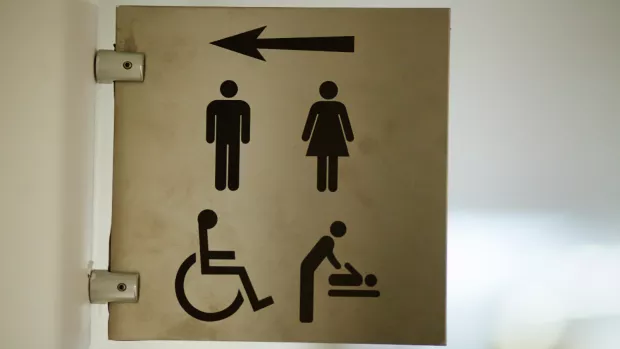
Types of bladder problem
There are two main types of bladder problems in MS: problems with storage and problems with emptying.
Doctors aren’t sure why some people get one and not the other, or why some people get a bit of both.
If everything is working as it should, bladder control is something most people tend to take for granted. When your bladder is getting full, a warning system between your brain and bladder tells you that you should go to the toilet – and you can usually ‘hold on’ until you get to one.
The muscles in the bladder need to work in coordination with each other when storing and emptying. One relaxes while the other contracts. Problems happen when something goes wrong with this system.
What causes bladder problems?
Problems with storage
When the nerve pathways in the spine are interrupted, even a small amount of pee in the bladder can cause it to contract. This causes a need to pee frequently – known as frequency.
Another problem is an inability to ‘hold on’, called urgency. If this is severe, urgency incontinence will be a problem.
Problems with emptying
The other main type of bladder trouble is to do with emptying. If the bladder muscles don't work in coordination, this can make pee flow poor and interrupted, and your bladder may not empty completely.
If your bladder isn’t emptying completely, you may not be able to feel it. However, if you need to go to the toilet for a second time only a short while later and you’re passing a similar amount of pee, this could be a sign that your bladder isn’t emptying fully.
Pee left in the bladder – this is called the post-residual volume – stimulates further bladder contractions and can add to problems of urgency and frequency.

During the journey I suddenly felt the need to pee. Not the slow, rising need everyone normally feels after a few drinks. No, a sudden switch. From no need at all to total desperation.Mark, MS blogger and campaigner
Urinary tract infections
If you have bladder problems, it’s important to be tested for a urinary tract infection (UTI), as the symptoms of a UTI can be very similar to bladder problems caused directly by MS – such as needing to go to the toilet frequently.
An infection can also make MS symptoms, including bladder problems, worse.
A UTI causes the pee to go cloudy and smelly, and some people may also have pain on passing pee, though not everyone.
Infections can usually be treated with antibiotics.



